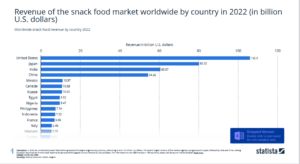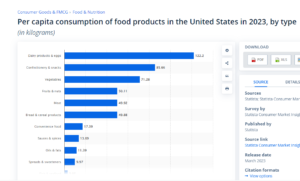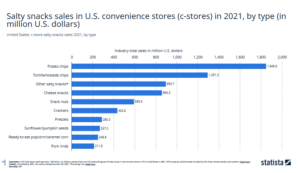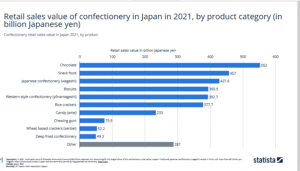It is well-known that the US is a country with a significant obesity problem, with a consistent year-over-year increase in the obesity rate. This poses risks not just to individuals who are obese, but also to the nation’s military preparedness, healthcare costs, and general social well-being. Obesity not only undermines self-esteem, but also leads to various diseases by weakening the human immune system. Furthermore, obesity carries a social stigma that can make individuals less accepted by their peer groups, leading to additional psychological issues and compounding stress.
Fortunately, fat-shaming has become more socially unacceptable in the U.S. in recent years, thanks to an overall emphasis on diversity, equity, and inclusion (DEI) across society. This shift helps to foster a positive self-image for individuals struggling with obesity and discourages people from making harmful comments that target the self-esteem and social equality of these individuals. Nevertheless, obesity remains a health concern that individuals should address seriously, with proper treatment from doctors and a thorough understanding of relevant quantitative data.
The point of this essay is to outline some thoughts on why snacking in the U.S. is a problem. This is a valid argument, but it overlooks an important fact: Japan is the world’s second-biggest snack-consuming country, trailing only the U.S. Why, then, do these two major snacking countries exhibit such different obesity outcomes? Japan is well known for being a healthy country with few obesity-related issues. The key difference lies in the types of food they eat. Japanese people consume a lot of chocolate, whereas U.S. snackers favor potato chips. This short discussion will explore the benefits of choosing chocolate over potato chips.
Numerous theories have been proposed to explain why certain populations in the U.S. are more prone to obesity than others, ranging from nutrition and exercise to popular culture and genetics. Obesity is, of course, a complex issue, and I am not an expert on this topic. However, having experienced it personally, I want to focus on how to manage weight better, especially given the rising healthcare costs. A year or so ago, I had rashes on my arm and itchy skin due to obesity. I was worried, but these symptoms have since disappeared after I successfully implemented some weight loss techniques inspired by Dr. Robert Maurer’s Kaizen philosophy. The Japanese word “Kaizen” means “improvement.”
In 2019, I visited Japan for an academic trip and noticed how slim the Japanese population is, despite the ubiquity of vending machines. According to data from Statista, the Japanese are the world’s second-biggest consumers of snacks. This observation is both fascinating and puzzling.
It turns out that the favorite snack of the U.S. population is the potato chip, with over 70 percent of adults eating them several times a week, especially after 8pm, likely while watching sports or TV. Snacking can cause insulin resistance, which impairs the body’s ability to efficiently convert energy. This can lead to a situation where the human body stores fat unnecessarily, instead of using the energy. This is because the body gets used to a predictable source of constant energy, so it learns that it doesn’t need to convert fat to energy and can simply wait for more intake. Dr. Jason Fung explains this theory in detail in his book, “The Obesity Code” (2016).
It’s widely accepted that losing weight benefits health. In fact, Dr. David A. Sinclair suggests in “Lifespan” (2019) that responsible eating habits and weight management are the most cost-effective methods to biologically delay aging and increase longevity. Weight loss can improve health, mood, and social prestige, enhance relationship success, and reduce exposure to judgmental comments. It is crucial to prioritize mental health and focus on internal motivations for weight loss rather than external pressures.
Constant snacking can lead to unnecessary energy intake and insulin resistance. As Dr. Jason Fung suggests in his book, it’s essential to train your mind to convince your body that its primary source of energy should be body fat, not food. When your body learns that it won’t receive a frequent source of energy, it begins to burn fat. It’s as simple as that. Our brains need to interpret the message of hunger differently. Instead of viewing hunger as a negative state, it should be seen as a mental exercise, training the body to adjust to a scarcity model so that it doesn’t anticipate a constant source of energy through food. For example, instead of focusing on the quantity, transfer your attention to the quality. Instead of paying 10 USD for a large plate of food, why not just buy two small pieces of high quality salmon sushi? And every time you ignore the body’s hunger alarm bell, it is a victory of mind over body which few can achieve. Then very soon, your body will get used to burning fat instead of demanding food intake and a sense of hunger will be greatly reduced.
The Japanese population also consumes a lot of snacks. However, the key differences, I propose, lie in two areas. Firstly, portion size. Japanese snack foods are usually separated into very small packages within a larger package. In contrast, a bag of chips in the U.S. can easily weigh 1-2 pounds, encouraging consumers to finish it before the chips become stale.
Secondly, the type of snacks differ. Japanese people mostly snack on chocolate, whereas the U.S. population prefers potato chips. There is readily available scientific evidence showing that one of the benefits of chocolate is delaying hunger. Chocolate, like coffee, has an effect on the brain that induces happiness and reduces cravings for food. Among the snack food choices in Japan, deep-fried foods rank the lowest. Japanese snackers don’t seem to enjoy potato chips as much as Americans do. This is a crucial difference because potato chips offer no nutritional value and are known to cause insulin resistance because they are a form of carbohydrate known to cause spikes in insulin levels. It is no surprise that Dr. Fung shared a tweet with the caption, “Eat chocolate — it’s a superfood.”
Despite the complexity of obesity, which has various causes and affects different people to varying degrees, it’s useful to observe that snacking on different foods can cause obesity in one country but not in another. People often discuss exercise and genetics in the context of obesity. But firstly, genetics is outside of your control, so talking about genetic differences in obesity is discussing something beyond your influence. Secondly, exercising is an unrealistic goal for many. Exercise helps, but it requires mental energy and constant motivation to overcome procrastination.
The reason why Maurer’s Kaizen works is that it taps into human psychology. Our brains control all our decision-making and can reverse patterns if we can fine-tune our thinking to be small and different. This requires a tricky habit change. The goal of public speakers, health administrators, teachers, and parents should not be to discourage others from eating snacks. This is impractical and, in the spirit of Occam’s razor, overly complex.
A better approach is to make tiny improvements that contribute to better results without creating resistance to change. This might mean replacing a bag of chips with a small bag of dark chocolate or other healthier snacks, or even dividing snacks into smaller portions to control intake. These simple changes can begin to shift habits in a more healthful direction without feeling overwhelming or punitive.
For instance, if you usually consume an entire bag of potato chips while watching television in the evening, try switching to a smaller bag, or to a snack that is healthier but still satisfying. Or, you could start by simply having a glass of water or a cup of herbal tea before reaching for the snack, which can help to reduce hunger and thus the amount you consume.
Another incremental change could be the time of snacking. Rather than indulging late at night when your body’s metabolism is slower and less active, try having a snack in the mid-afternoon when your body is more likely to use the energy efficiently.
In addition to modifying snack choices and habits, consider incorporating small amounts of physical activity into your routine. Instead of attempting a strenuous hour-long workout, start with a five-minute walk around the block or a few minutes of stretching during a TV commercial break. These small changes can add up over time and contribute to a healthier lifestyle.
Also, it’s essential to keep in mind the importance of mindset. Recognize that it’s okay to feel hungry sometimes. As Dr. Fung points out, our bodies are designed to use stored fat for energy when food is scarce. Learning to interpret hunger not as an emergency but as a sign that your body is using its energy stores can be a powerful tool in managing weight and health.
In conclusion, while the U.S. does consume more snacks than any other country, it’s not just the quantity, but the type of snacks and related behaviors that contribute to the country’s obesity problem. By adopting the Kaizen philosophy of continuous small improvements, individuals can begin to shift their habits and mindset towards healthier choices, potentially making a significant impact on their weight and overall health.



